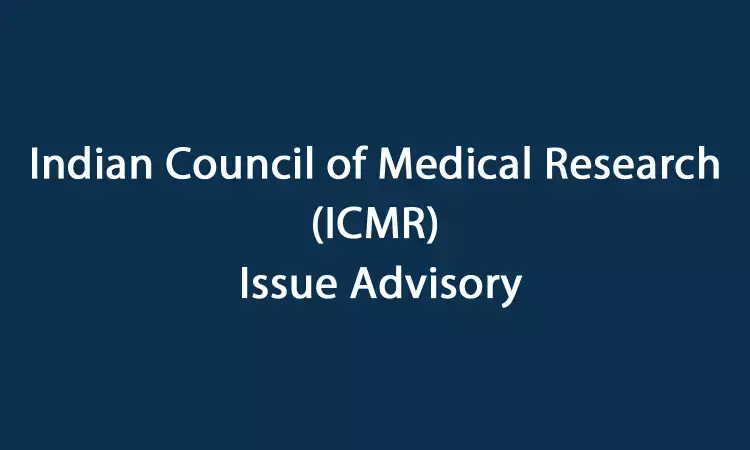- Home
- Medical news & Guidelines
- Anesthesiology
- Cardiology and CTVS
- Critical Care
- Dentistry
- Dermatology
- Diabetes and Endocrinology
- ENT
- Gastroenterology
- Medicine
- Nephrology
- Neurology
- Obstretics-Gynaecology
- Oncology
- Ophthalmology
- Orthopaedics
- Pediatrics-Neonatology
- Psychiatry
- Pulmonology
- Radiology
- Surgery
- Urology
- Laboratory Medicine
- Diet
- Nursing
- Paramedical
- Physiotherapy
- Health news
- Fact Check
- Bone Health Fact Check
- Brain Health Fact Check
- Cancer Related Fact Check
- Child Care Fact Check
- Dental and oral health fact check
- Diabetes and metabolic health fact check
- Diet and Nutrition Fact Check
- Eye and ENT Care Fact Check
- Fitness fact check
- Gut health fact check
- Heart health fact check
- Kidney health fact check
- Medical education fact check
- Men's health fact check
- Respiratory fact check
- Skin and hair care fact check
- Vaccine and Immunization fact check
- Women's health fact check
- AYUSH
- State News
- Andaman and Nicobar Islands
- Andhra Pradesh
- Arunachal Pradesh
- Assam
- Bihar
- Chandigarh
- Chattisgarh
- Dadra and Nagar Haveli
- Daman and Diu
- Delhi
- Goa
- Gujarat
- Haryana
- Himachal Pradesh
- Jammu & Kashmir
- Jharkhand
- Karnataka
- Kerala
- Ladakh
- Lakshadweep
- Madhya Pradesh
- Maharashtra
- Manipur
- Meghalaya
- Mizoram
- Nagaland
- Odisha
- Puducherry
- Punjab
- Rajasthan
- Sikkim
- Tamil Nadu
- Telangana
- Tripura
- Uttar Pradesh
- Uttrakhand
- West Bengal
- Medical Education
- Industry
Covid-19: ICMR issues advisory for use of Feluda paper strip test

The paper strip uses cutting edge CRISPR gene editing technology to identify and target the genetic material of SARS CoV 2, the virus that causes COVID19 in less than an hour.
New Delhi: The Indian Council of Medical Research (ICMR) on Thursday issued an advisory for the use of indigenously developed Feluda paper strip test, which is based on CRISPR-Cas9 technology for diagnosis of SARS-CoV-2, by the laboratories.
The paper-strip uses cutting-edge CRISPR gene-editing technology to identify and target the genetic material of SARS-CoV-2, the virus that causes COVID-19 in less than an hour.
As claimed by the manufacturer, no further RT-PCR based confirmation is required for samples that are confirmed as positive or negative by the CRISPR SARS-CoV-2 test, the advisory stated.
The test has been developed by Council of Scientific and Industrial Research''s (CSIRs) Institute of Genomics and Integrative Biology (IGIB), Delhi and has been validated by the National Centre for Biological Sciences and Tata Institute of Fundamental Research.
The test has been approved by the Drugs Controller General of India (DCGI) for use in the country.
"The test works by identifying SARS-CoV-2 virus strain and uses a Thermal Cycler instead of a qPCR machine for conducting the test. As claimed by the manufacturer, no further RT-PCR based confirmation is required for samples that are confirmed as positives or negatives by the CRISPR SARS-CoV-2 test, " the ICMR said in its advisory.
Existing government or private laboratories already approved by the ICMR for SARS-CoV-2 RT-PCR based testing may use this new CRISPR test if the laboratory desires to do so.
No further approval is required from ICMR for existing laboratories.
New laboratories intending to initiate molecular testing of SARS-CoV-2 testing by any method will be required to seek approval as per the standard process laid down by the ICMR and NABL before initiating any kind of molecular testing, the advisory said.
Any prescription for RT-PCR, CRISPR, TRUENAT, CBNAAT may be considered equivalent.
All testing data should be essentially entered into the ICMR COVID-19 web portal on a real time basis.
Union Health Minister Harsh Vardhan had recently said that based on tests in over 2,000 patients during the trials at the Institute of Genomics and Integrative Biology (IGIB) and testing in private labs, the tests showed 96 per cent sensitivity and 98 per cent specificity.
This compares favourably to ICMR''s current acceptation criteria of RT-PCR kit of at least 95 per cent sensitivity and at least 99 per cent specificity, he had stated.
Also Read: Covid Recovery Rate in MP At 90.55 percent: Dr Harsh Vardhan
Medical Dialogues Bureau consists of a team of passionate medical/scientific writers, led by doctors and healthcare researchers. Our team efforts to bring you updated and timely news about the important happenings of the medical and healthcare sector. Our editorial team can be reached at editorial@medicaldialogues.in.


